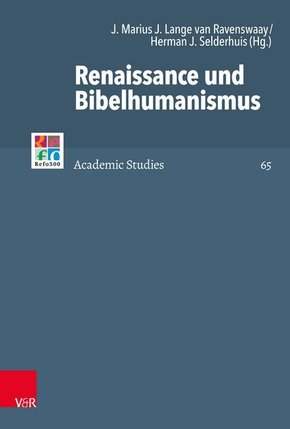Als im Jahr 1516 die neue Ausgabe des Neuen Testaments, das Novum Instrumentum des Erasmus von Rotterdam erschien, war dies ein herausragendes Ereignis mit weitreichenden Konsequenzen und Wirkungen. Sowohl die Reformation des 16. Jahrhunderts mit ihrer zentralen Stellung der biblischen Schriften und ihrer Exegese als auch die Entwicklung der in die Moderne weisenden biblischen Textkritik lassen sich ohne die Arbeiten des Erasmus kaum denken. Dennoch ist auch Erasmus in einem breiteren Zusammenhang der mannigfachen Bibel- und Text-orientierten Reformbewegung des Spätmittelalters, der Renaissance und des Humanismus zu sehen. Dies verdeutlichen die einzelnen Beiträge des vorliegenden Bandes.
Mark W. Elliott, BA (Oxon), BD (Abdn), PhD (Cantab), FRSE, has taught at the universities of Nottingham, Liverpool Hope, St Andrews, Glasgow and now at the University of the Highland and Islands (Highland Theological College) where he is Professor of Biblical and Historical Theology, combining this with a half-time position (Professorial Fellow) at Wycliffe College, University of Toronto. Recent projects include History of Scottish Theology (co-edited with David Fergusson, published by Oxford University Press, 2019) and Providence: Biblical and Theological with Baker (2020), and Psalms 42-72 (ITC: Bloomsbury, 2023). He has been co-chair of the History of Interpretation Section at the Annual Meeting of the Society for Biblical Literature (2015-21) and editor of the Mohr Siebeck Series, History of Biblical Exegesis. Dr. Günter Frank ist Direktor der Europäischen Melanchthon-Akademie Bretten und außerplanmäßiger Professor am Karlsruher Institut für Technologie. Wim François is Research Professor of Early Modern Church and Theology, Faculty of Theology and Religious Studies, KU Leuven, Belgium. Antonio Gerace is Postdoctoral researcher at the University of Bologna, working on Early Modern Chuch History. He has affiliation with the KU Leuven (Belgium) and the UAB (Barcelona), collaborates with Conimbricenses Encyclopedia and he is member of EUARE.
Autorenporträt schließen

